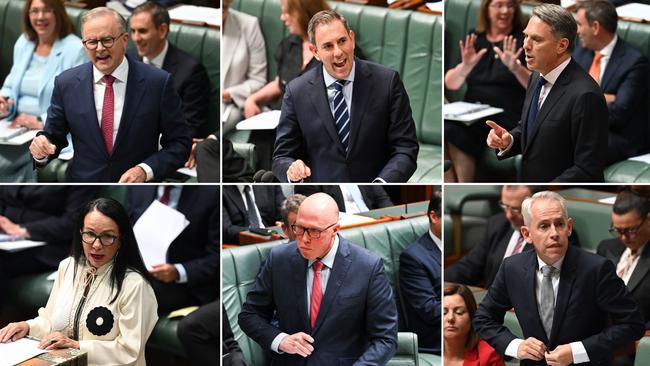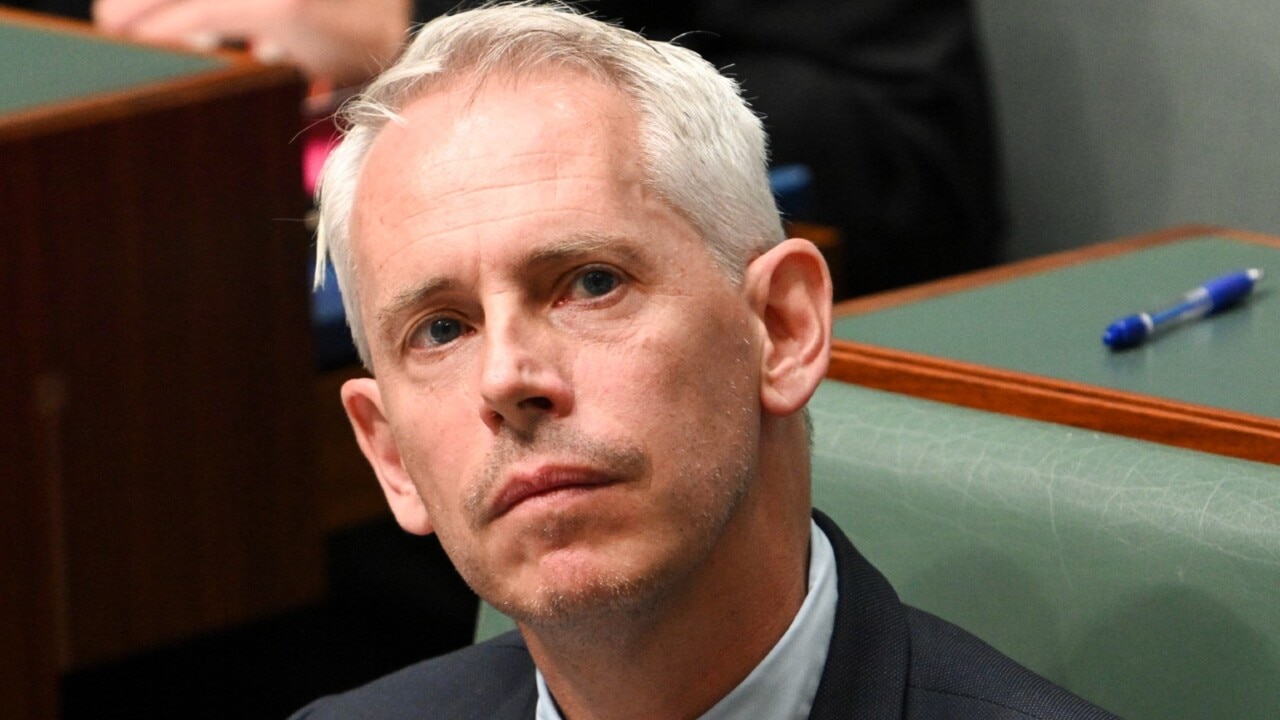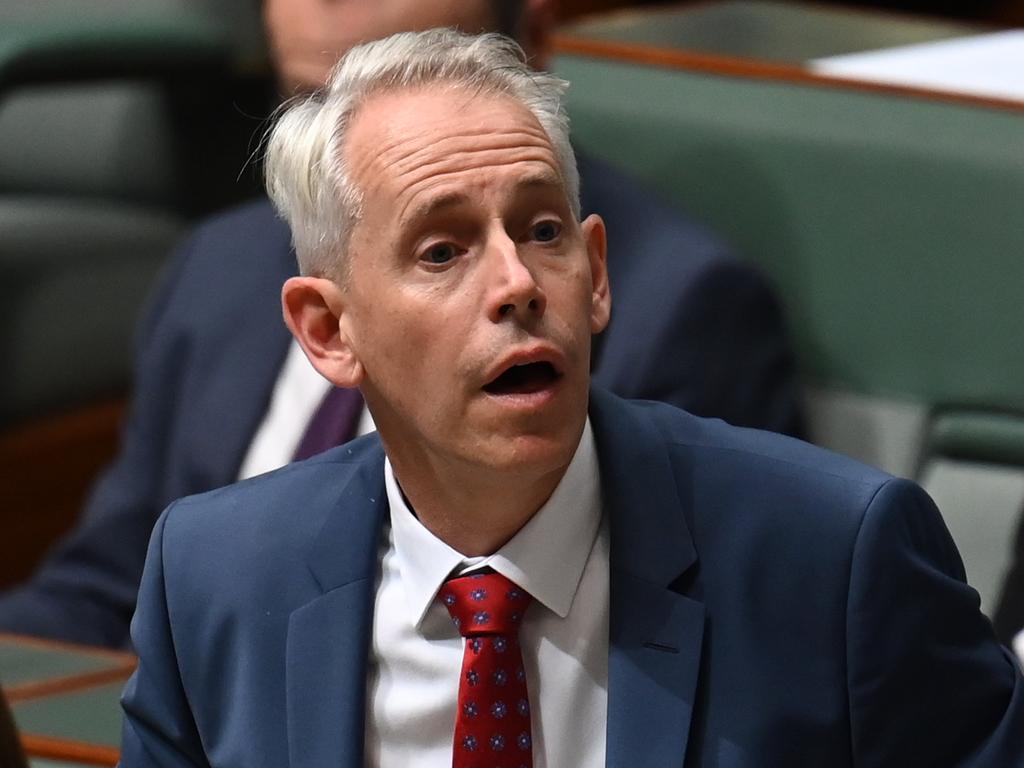The new mantra Labor is uttering at every opportunity
Anthony Albanese’s all-in tax offensive is at longer-term risk of failure because it is based on a gross, if not grotesque, distortion of the policy principle and politics of the process.

Every Labor minister, every MP and every senator is piling into the great tax cut story as part of a determination to focus on relieving cost-of-living pressures on middle Australia, halt the fall in Labor support, do well in the Dunkley by-election and sweep towards re-election.
This is an utter and complete commitment to success from tax cuts.
The Prime Minister’s concentration has left little room for anything else but “Albo’s tax cuts” and doesn’t allow for any lesser issues, especially since the year-long distraction of the Indigenous voice to parliament referendum failure.
Yet there is never a simple, single panacea for political problems and there is growing evidence, even as the tax cuts pass parliament, that the tax cuts themselves may not provide enough ready relief to middle Australia, which continues to hurt under rising prices; that the leadership credibility damage will be worse than Labor thinks; and no matter how popular, tax cuts are not the only issue that grab voters’ attention.
Albanese’s grand tax giveaway plan aimed at avoiding a potentially fatal midterm slump has succeeded in the short term with Albanese declaring he had made polling history as a first-term government by not going into a slump over summer and never being behind the opposition on a two-party-preferred basis.
The morale of Labor MPs also lifted and the passage of the redesigned laws handing bigger tax cuts for lower-income earners has given a mantra to ministers and MPs to utter at every opportunity as they pivot away from what was legislated tax reform in 2018 to limit bracket creep to a short-term tax cut for more people.
In Albanese’s words: “These tax cuts are aimed squarely at middle Australia – at those people who go to work, work hard to make a difference for themselves and their family and deserve a reward. We want Australians to earn more and to keep more of what they earn.
“Those opposite want people to work longer for less,” he said.
From ministers to backbenchers, every Labor MP parroted the lines in parliament over the past two weeks. The Prime Minister led the way on relentless repetition to get the message through on relieving the cost of living for lower-income earners with the re-legislated, rewritten stage three tax cuts.
But as much as Labor may plan, want and wish that tax will dominate the political agenda, there was a sobering reminder this week in parliament that there are still uncomfortable and potentially politically damaging facts emerging about the process of the tax cuts and even more uncomfortable harsh realities forcing their way on to the agenda.
This week the debilitating issue of the handling of 149 criminals released into the community last year from immigration detention after a High Court ruling resurfaced amid a general increase in concern about law and order, and Immigration Minister Andrew Giles was even more inept at handling legitimate questions than he was last year.

Giles’s failure to be across the detail of what the criminals were doing, including 24 who have been charged with offences since they were released, and what the government was doing in the interests of victims and the community was embarrassing and cringe-worthy.
The minister’s pathetic request for Peter Dutton to put him in touch with the family of a woman who had been murdered by one of the released detainees and feared he would “seek revenge” against them was a capitulation of a minister and a condemnation of a department.
Giles’s ineptitude played into the Opposition Leader’s growing theme that Albanese is a weak leader of an incompetent government, where Defence Minister Richard Marles is failing to ensure national security because he is “at war” with his department and the government is walking away from commitments to Indigenous Australians after the loss the referendum. Dutton’s mantra is: “This is an incompetent government with a weak leader who has breached the trust of the Australian people.”
Dutton seeks to tie Labor’s broken election promise over not changing the stage three tax cuts with Albanese’s being a “liar in the Lodge” and the repeated assurances over the summer that the government was not changing its position on the tax cuts.
This is the slow-burn negative for Labor over integrity of leadership in contrast to the short-term benefit, particularly before the Dunkley by-election on March 2, of the tax cuts promise.
But Dutton argues that Liberal research from the Dunkley electorate is “that people firstly have cottoned on that they don’t get anything until July 1 and they’re getting 15 bucks a week when they need to find $150 a week-plus in their budget to make things add up and make their budgets balance”.
While Labor tries to dismiss the issue that it has misled the public as simply a matter of process and uses tricky, pernickety language to repeat assurances that the government hadn’t changed its mind, which was technically true until the night of January 25 when cabinet made the decision, it’s a bad look that can’t be explained away.
This is another issue that has been exacerbated by the return to parliamentary sittings and Senate committees where Treasury secretary Steven Kennedy, carefully and professionally, made it clear that despite denials from Albanese and Jim Chalmers, Treasury had kept them “in the loop” about work on changing the tax cut regime. The Treasurer, while maintaining the technical fig-leaf argument of no change until the cabinet decision was made, conceded on Thursday he had been working on a cabinet submission on tax cuts well before the cabinet meeting.
Yet Albanese said to Laura Tingle on the ABC’s 7.30 program on December 21 when asked about changes to the stage three tax cuts: “We’re not reconsidering that position. What we’re looking at, though, is how we can provide further support for low and middle-income earners.”
There is no doubt, practically, realistically and logically, that the government was aware of Treasury’s plans from at least the beginning of December; a cabinet submission did not appear overnight and denials of any consideration were dissembling at best.
But there is even greater political legerdemain over the complete re-creation of “Albo’s tax cuts”, as they were called in parliament this week, as Chalmers seeks to portray the redistribution of government dividends of aspiration-destroying bracket creep and the retention of tax scales that will deliver $28bn in bracket creep over the next 10 years as “reform”.
Chalmers said: “The tax cuts are a combination of relief and reform and responsibility – more relief for middle Australia, better reform for our economy and consistent with the responsible approach that we have taken to managing the budget and also managing the economy more broadly.
“Australian workers are now one step closer to a bigger tax cut for more people to help with the cost of living. This is about ensuring that Australians can earn more and keep more of what they earn. The contrast in the parliament couldn’t be clearer between a Labor Party that wants to see people keep more of what they earn, and the Liberal and National parties that want people to work longer for less,” he said in a word-perfect script.
With the old whiff of class warfare, Labor MPs say how the new cuts will deliver tax cuts for everyone including those earning under $45,000 who would have received “zero – a doughnut” under the stage three reforms. This is an airbrushing from history of the first two stages of the tax cuts since 2018, which have already delivered tax cuts for low and lower as well as middle-income taxpayers.
Even the legislated tax cuts, as Albanese himself pointed out over summer, went down as low as $45,000 a year.
Also, with the passage of the new tax cuts, with Coalition support, this week there will be a hiatus until the average $15 a week tax cuts are delivered after July 1 and increased pressure on Chalmers to do even more in the May budget to ease the pain of rising grocery prices, high housing costs and petrol and beer being pushed up by excise.
Albanese is giving his all in this effort to ensure Labor does not fall behind in what could be an election year, yet a complete reliance on tax cuts to carry the government to re-election is no guarantee of long-term success when there is so much distraction and ineptitude from last year to be made up for this year.







Anthony Albanese’s all-in tax offensive with “Labor’s tax cuts for all” is at longer-term risk of failure because it is based on a gross, if not grotesque, distortion of the policy principle and politics of the process. It is no silver bullet for electoral success.